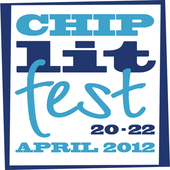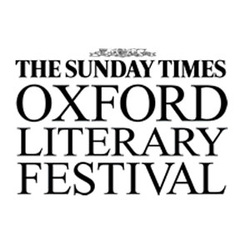
I just spent a lovely sunny weekend as a volunteer at the Chipping Norton Literary Festival, mainly as their (wo)man on the ground tweeter, and had a great time.
The festival is only in its second year but it already has a huge fan base and had some big names authors, including Lionel Shriver, Fern Britton, Richard Dawkins and Val McDermid. Working with a variety of local partners, the small committee are able to put on a great event and I was glad to be involved as one of the many eager volunteers.
I started work on the Friday which was the day that the festival sent children's authors, including Sarah McIntyre and Susie Day, into some of the local primary schools where they gave really exciting talks featuring, among other things, swords and superheroes. I didn't go out to the schools but was in charge of coordinating everything, making sure the right author went to right school in the right car with the right volunteer. So that took some doing but, except for one missing author scare, everything worked out alright. The best bit about the day for me was getting to settle down in the corner of Jaffe & Neale bookshop with unlimited tea organising and tweeting and looking at the books. If you ever have
The festival is only in its second year but it already has a huge fan base and had some big names authors, including Lionel Shriver, Fern Britton, Richard Dawkins and Val McDermid. Working with a variety of local partners, the small committee are able to put on a great event and I was glad to be involved as one of the many eager volunteers.
I started work on the Friday which was the day that the festival sent children's authors, including Sarah McIntyre and Susie Day, into some of the local primary schools where they gave really exciting talks featuring, among other things, swords and superheroes. I didn't go out to the schools but was in charge of coordinating everything, making sure the right author went to right school in the right car with the right volunteer. So that took some doing but, except for one missing author scare, everything worked out alright. The best bit about the day for me was getting to settle down in the corner of Jaffe & Neale bookshop with unlimited tea organising and tweeting and looking at the books. If you ever have

 RSS Feed
RSS Feed